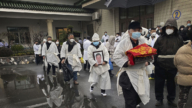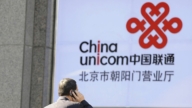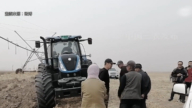【新唐人2014年06月30日讯】大陆媒体人邓飞在看到贵州的乡村孩子们饿着肚子上学的心酸情景之后,开始建立自己的慈善事业,为农村孩子提供免费午餐。美国有线新闻网(CNN)报导指出,中国从顶层开始就是一个一党专制国家。但是草根运动一直在底层沸腾,带来亟需的社会改变。
在三年里邓飞的“给孩子免费午餐”运动,喂养了总共92000名孩子,跨越23个省份。
邓飞告诉美国有线新闻网《CNN》﹕“(中共)政府不能解决我们的所有问题”,“我们必须放弃不切实际的想法,自己采取主动行动。”
按照官方统计,中国有五十万个注册非政府组织,英文称NGO。而未注册的NGO数字,专家估计接近2百万。
散布于全中国的非政府组织,致力于改善当地人们的生活,不管是劳工问题,妇女权益还是环境问题。
《中国劳工通讯》创始人韩东方说,官方工会未能代表这个国家工人的需要。中国的工人们没有选择,只能让自己成为改变这个国家的力量,争取更好的薪资和发动公民行动。
由于中共对民间团体抱有强烈的戒心,还有许多的中国NGO迫于无奈,只能注册成为工商团体。北京“益仁平中心”是一个非营利性的公益机构,成立于2006年12月19号,致力于开展疾病防治健康教育、病患者救助及消除歧视等公益工作。但是创办人陆军告诉《新唐人》,“益仁平”做的是工商注册。
北京益仁平创办人陆军:“由于在中国,民间组织的注册就很难获得民政部门的支持,民政部门很难为民间组织进行注册。所以我们现在和许多NGO一样,都是工商注册。”
北京益仁平中心创办人陆军说,张冠李戴的注册给NGO展开工作带来诸多困难。因为在NGO来讲,它是公益组织和志愿者组织,有大量的工作需要志愿者来开展。但是由于工商注册机构没有会员,所以志愿者的凝聚力,管理和法律地位都存在问题。这种中国特色的NGO运营方式也常常令外国人感到困惑,因此在获得外界的认可和支持方面,有很大的问题。
陆军:“因为对于NGO来讲,需要资金方面的支持,从外界筹款,另外一方面需要和外界进行合作,政府呀,企业呀,其他非政府组织啊,国际合作啊,那人家一看你是一个工商注册机构,那么就会想当然的认为你是一个盈利机构。这样的话,无论是对于你的捐款,还是和你的合作,都会有所顾虑。”
陆军表示,在中国NGO一向都是政府非常担心,非常顾虑,非常警惕,非常紧张的监控对像。所以在过去这些年里,很多NGO被政府取缔、罚款、各种惩罚。“益仁平”办公室也曾经遭到搜查,他们的同事也曾经被调查,也有同事曾经失踪,网站被屏蔽。
陆军:“维稳部门应该说它对NGO一贯都是非常警惕、非常保守的,甚至非常过时的一种看法。在他们眼里,中国NGO会像中东、东欧一样,会要掀起颜色革命,这种担心在05年、06年之后,可以说是达到了登峰造极的地步。”
陆军指出,中国当前社会矛盾突出,NGO实际上起到的作用是解决社会矛盾,对于民众的福祉、国家的稳定,作出的是正面贡献。因此当局对NGO采取敌对的态度,非常不可理喻。
据了解,随着中国社交媒体的兴起,中国的公民社会变得更加紧密,能够更好的分配资源,将需要的人们联系到一起,包括中国煤矿工人,他们往往孤立的面对致命性的矽肺病。
《CNN》引述《经济学人》杂志北京分社社长麦杰斯(James Miles)的话说,今天的中国民众跟25年前的“天安门时代”相比,可以更快速的组成团体。政府在控制信息传播,制止民众组织的方面,也将变得更加困难。他相信公民社会在改变中国的政治格局方面,可能能很好的扮演一个关键角色。
采访编辑/秦雪 后制/舒灿
Grassroots Activism Bubbling Up Despite Single- Party Rule
Deng Fei, a journalist, saw it first-hand on a reporting trip
in Guizhou province: scores of children going to school hungry.
Deng started his own private charity
to provide free meals for China’s village children.
As reported by CNN, China is a single-party state run from the top.
But grassroots activism has been bubbling up from beneath,
bringing about much needed social support and change.
Deng’s “Free Lunch for Children” campaign, in 3 years,
has fed a total of 92,000 kids across 23 Chinese provinces.
“The government won’t be able to solve all our problems,"
Deng tells CNN. “We must give up this unrealistic idea
and take the initiative ourselves.”
Officially, China has around half a million registered
non-governmental organizations (NGOs),
most with government connections.
Unregistered independent NGOs, number
close to two million as estimated by some professionals.
These are tiny little groups of people all over the country
trying to improve the lives of people in those areas:
on labor issues, women’s rights or the environment.
Han Dongfang, founder and director of China Labor Bulletin,
said China’s national trade union has failed to represent
the needs of the nation’s workers.
So the workers have no choice
but be their own force for change
striking for better wages and
launching civil action for just compensation
The Party remains vigilant toward these NGOs.
Therefore, a lot of NGOs in China have been forced to register
as industrial and commercial associations.
For instance, Beijing “Yi Ren Ping Center” is a
non-profit charity organization, founded December 2006.
It works in health education for
prevention and treatment of disease,
medical rescue and elimination of discrimination.
Lu Jun, founder of “Yi Ren Ping Center” told NTDTV
it was registered as a commercial association.
Lu Jun: “In China, it’s very hard for an NGO to get approved
by the civil administration department.
So, like a lot of others , we are registered as
industrial and commercial associations.”
As reported by CNN, the misleading registration has caused
a lot of difficulties for NGOs, normally charity organizations
dependent on volunteers.
But, industrial and commercial structures
lack the cohesive force to get volunteer support.
Chinese-style NGOs often confuse foreigners.
It’s challenging for them to gain support and approval.
Lu Jun: “NGOs need to raise funds externally.
We also need to cooperate with governments,
companies, other NGOs, and internationally.
When your partners see the way you are registered,
they will assume you are a for-profit organization.
This is a concern when they consider donating money
or collaborating with you.”
Lu Jun said in China the government has been watchful of NGOs.
In the past, a lot were banned or fined.
“Yi Ren Ping” office has been searched
and colleagues investigated.
Some coworkers went missing for days,
and their website closed down.
Lu Jun: “The stability maintenance department’s view of NGOs
is out-of-date. In their eyes, NGOs in China are like Middle-East
groups which might bring about a revolution.
They were unprecedentedly worried in 2005 and 2006. ”
Lu Jun pointed out that NGOs can help alleviate social conflict.
They positively contribute to people’s happiness
and the nation’s stability.
It’s hard to understand the Party’s attitude.
With the rise of social media in China,
society is more connected and better resourced than before,
bringing people in need together,
including China’s once isolated coal miners
suffering from deadly lung diseases.
James Miles, the Economist’s Beijing Bureau Chief,
said in CNN’s report: “What we might see now compared
with 25 years ago during Tiananmen, is that the cells of
organizations are more quickly formed.”
“It would be more difficult for the government
to control information, to stop people organizing, and to stop
the flow of information in these kinds of critical events.”"
Miles believes civil society may very well play a crucial role in
changing China’s political landscape.
Interview & Edit/QinXue Post-Production/ShuChan




























